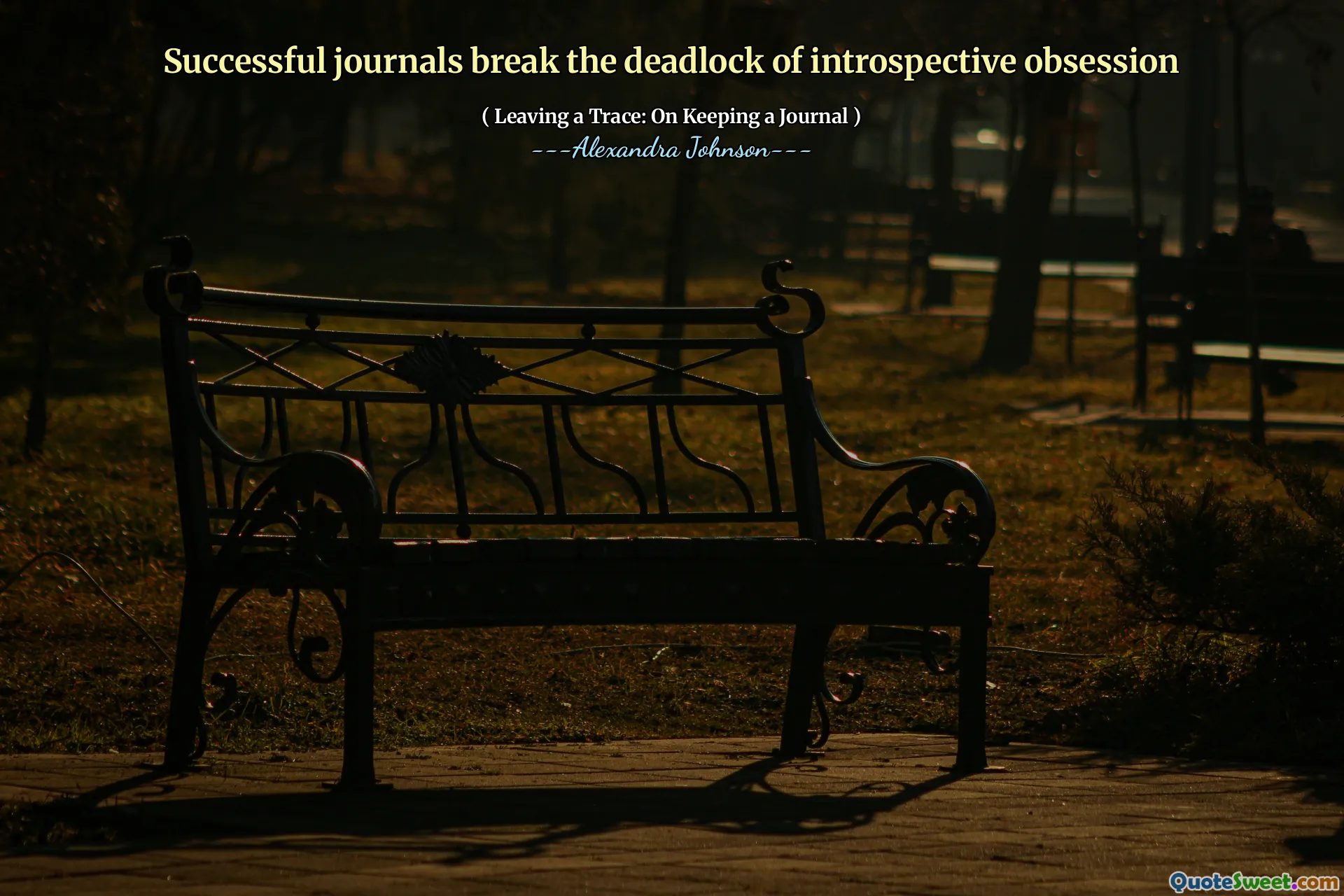
Successful journals break the deadlock of introspective obsession
The essence of this quote hints at the transformative power of journaling when approached with purpose and clarity. Journaling often begins as a tool for introspection, a private space to process emotions, reflect on experiences, and understand oneself better. However, when it devolves into obsessive rumination, it can trap the writer in a cycle of self-centered analysis that hampers growth. The idea of a successful journal is one that moves beyond mere introspection to facilitate progress, insight, and action. Such journals serve as catalysts for change, enabling individuals to recognize patterns, challenge assumptions, and uncover solutions rather than simply dwell on problems.
A successful journal functions much like a conversation with oneself that promotes honesty and constructive feedback. It pushes the writer to ask why certain feelings arise or why certain situations recur, encouraging a more empirical approach rather than emotional stagnation. This approach aligns with the philosophy that reflection is most effective when it leads to learning and development instead of obsessive dwelling.
Moreover, breaking the deadlock implies an active engagement with life rather than passive analysis. When journaling becomes an active pursuit of progress—setting goals, tracking progress, exploring possibilities—it graduates from mere introspection to a proactive tool. It allows the writer to synthesize thoughts, recognize leaps of insight, and even spur motivation. Ultimately, successful journaling embodies a balance: introspection that enlightens but does not imprison, action that is informed but not impulsive.
In the context of Alexandra Johnson’s work, this quote is an inspiring reminder that a journal’s ultimate purpose is to serve as a bridge: from reflection to realization, from stagnation to momentum, thus transforming inner exploration into outward achievement.




